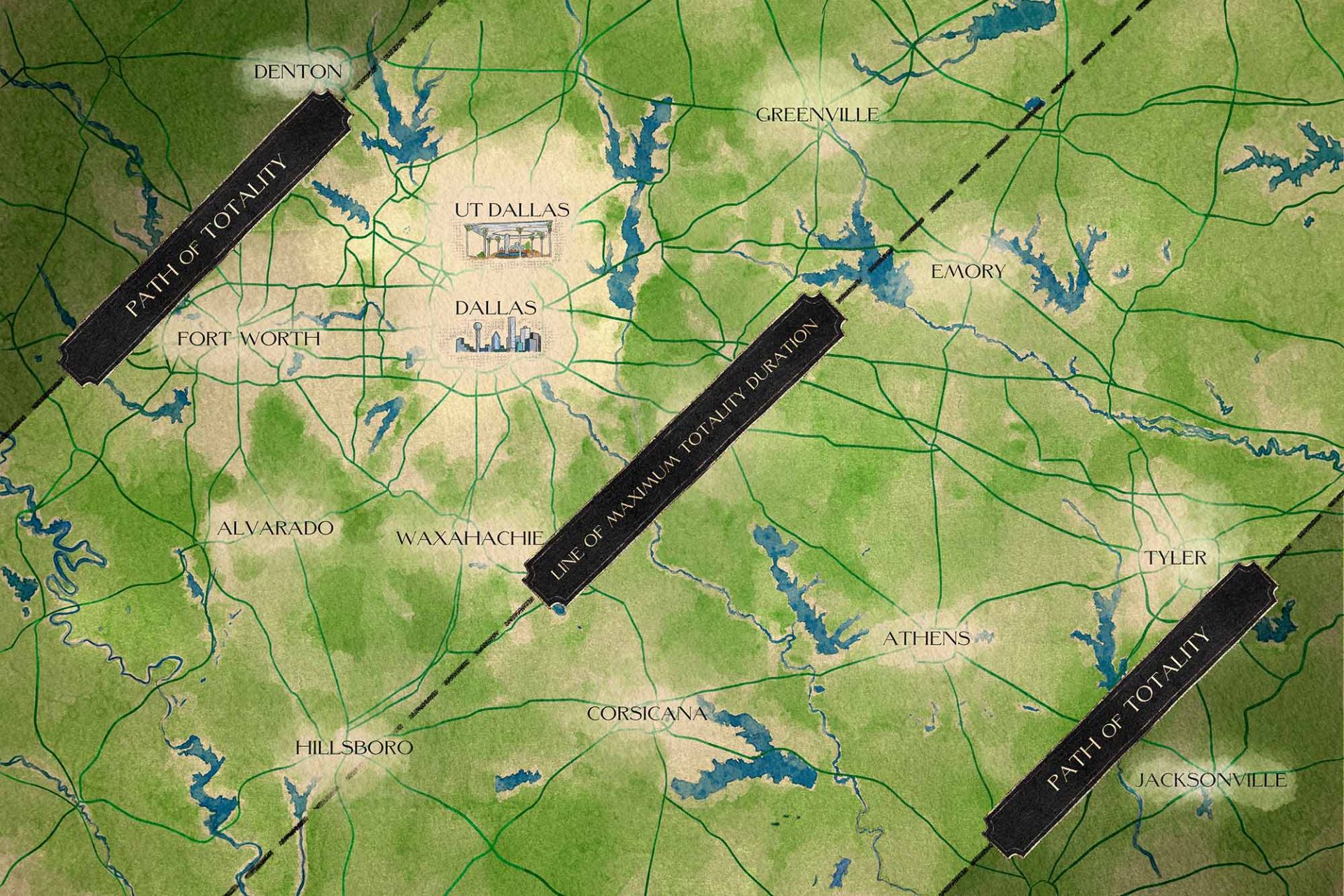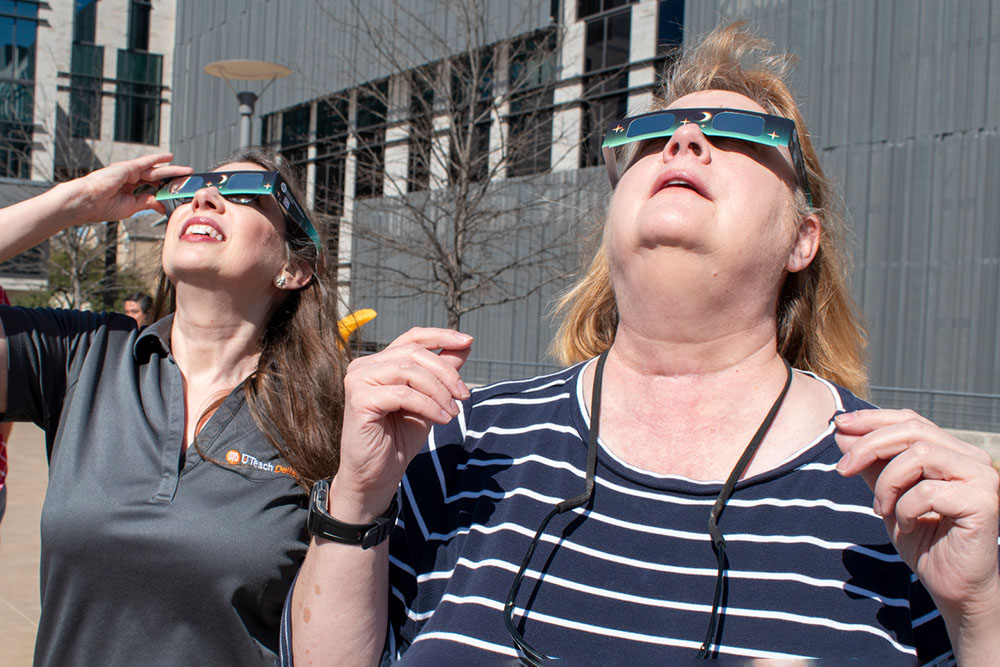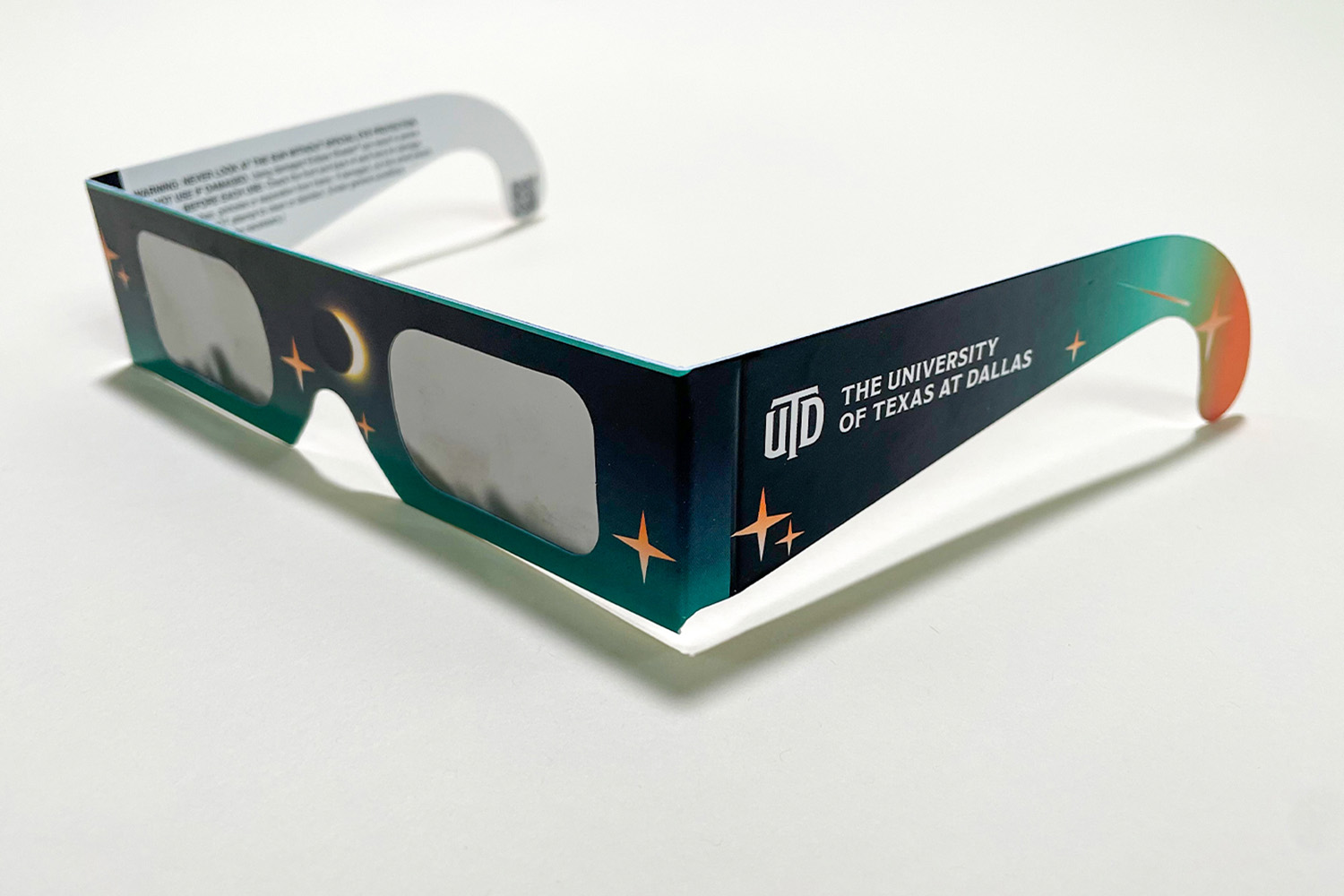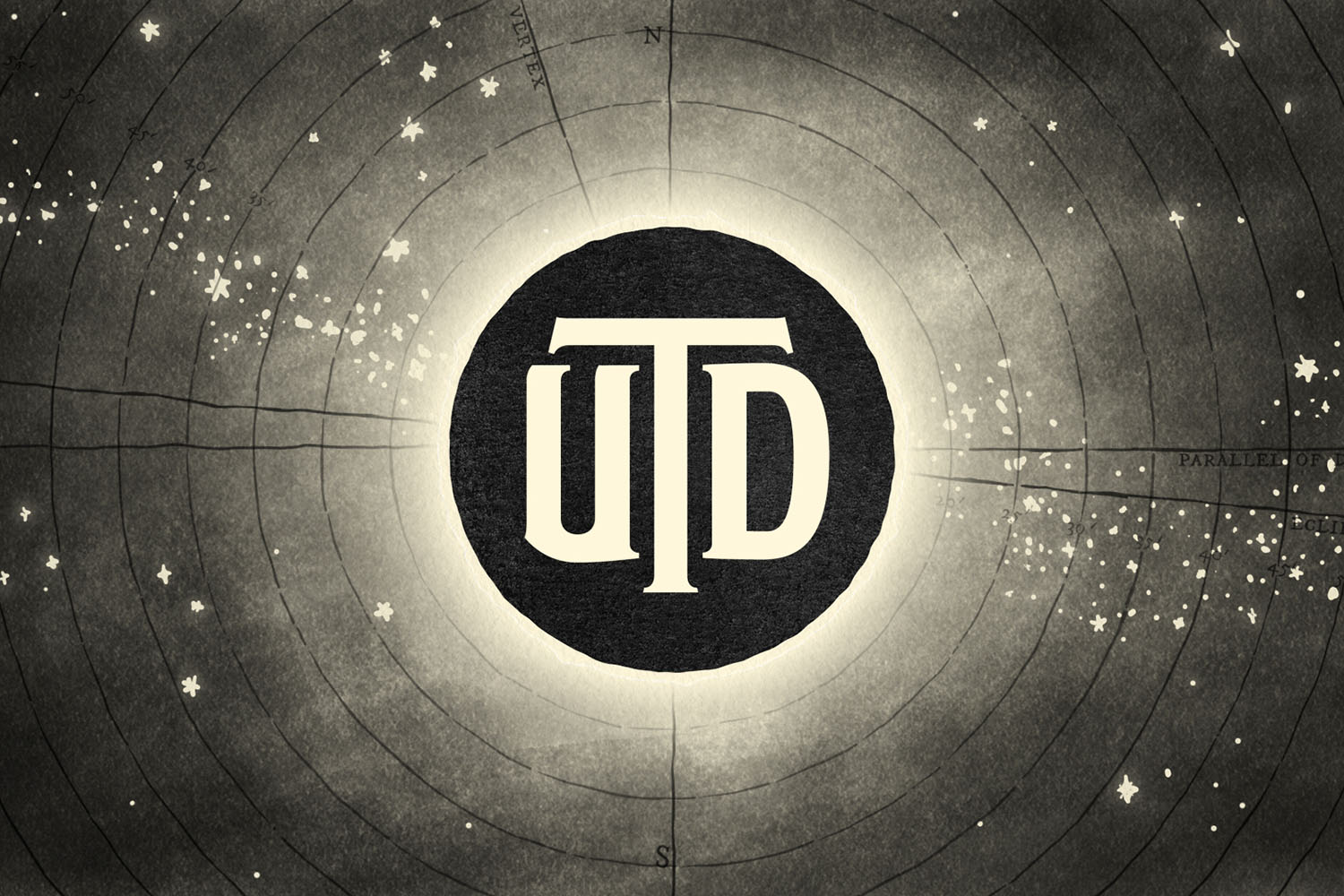UTD To Celebrate Solar Eclipse with Events Totally Made for Comets
By: Amanda Siegfried | March 25, 2024

The University of Texas at Dallas community will celebrate a celestial event almost 150 years in the making for North Texas with activities designed to bring Comets closer together and give them a better view of the science in the skies.

On Monday, April 8, a total solar eclipse will be visible in a very narrow swath spanning the contiguous United States and parts of Mexico and Canada. At UT Dallas, the eclipse will be visible from 12:23 p.m. to 3:03 p.m., with about 3 ½ minutes of totality beginning at 1:41 p.m.
“No Comet Left Inside,” UTD’s campuswide celebration, will include giveaways, booths, music and telescopic projection viewing areas. The most recent total solar eclipse visible in North Texas was in 1878, and after this year’s eclipse, another one won’t be observable in the region until 2317.
Classes on April 8 are canceled between 1 p.m. and 2 p.m., and nonessential services will be suspended so that staff members, as well as faculty members and students, can enjoy the spectacle.
“For many viewers, this total solar eclipse will be a once-in-a-lifetime event,” said Dr. Mary Urquhart, planetary scientist and associate professor and department head of science/mathematics education in the School of Natural Sciences and Mathematics. Urquhart, who viewed the 2017 total solar eclipse from Tennessee, leads a campuswide eclipse committee.

Staying Safe
Protective eclipse glasses must be worn to view the sun safely during the partial phases of the eclipse leading up to and directly after totality. Only during totality is it safe to remove the glasses and view the eclipse directly. The website timeanddate.com has an interactive map that provides details about the timing of various phases of the eclipse from a specific location.
“Witnessing a total solar eclipse can be a profound, transformative experience for many people, and experiencing it together with friends and family, or even strangers, can make lasting memories. This is an event for all Comets. If you have a clear view of the sun, you don’t have to go anywhere else to be a part of this rare celestial event.”
Campus activities will include:
- 10 a.m.: Protective eclipse glasses, distributed by the Office of Research and Innovation, and commemorative T-shirts will be available, while supplies last, to those who show their valid Comet Card. After the eclipse, used glasses may be deposited in donation bins for Astronomers Without Borders. See the map for locations.
- 11 a.m. to noon: A roundtable discussion featuring Dr. Eileen Stansbery, chief of the Astromaterials Research and Exploration Science Division at the NASA Johnson Space Center; Dan Brounoff, chief meteorologist at KRLD-AM; and Dr. Mustapha Ishak-Boushaki, UTD professor of physics, will be held in the Edith O’Donnell Arts and Technology Building Lecture Hall.
- Noon: Various organizations will have booths on Margaret McDermott Mall, and music will be played on Chess Plaza and near the Sciences Building. KRLD’s Brounoff will broadcast live from Chess Plaza.
- UTD scientists will set up three outdoor locations with telescopes for projection viewing, as well as other indirect viewing methods.
- Livestreaming of the eclipse will be available in the Student Union Galaxy Rooms.
Dr. Pamela Gossin, professor of literature and of the history of science in the Harry W. Bass Jr. School of Arts, Humanities, and Technology, teaches courses on the history of astronomy and cosmology, which include perspectives on the scientific, historical, cultural and artistic significance of astronomical events. She witnessed the 2017 eclipse from Nebraska.

March 26 Panel Discussion: UTD Experts To Discuss Eclipse
Video: UTD Planetary Scientist Debunks Solar Eclipse Myths
For the latest eclipse news, events and information, along with safe-viewing tips and other resources, visit the UT Dallas eclipse website.
“Over the past four years, especially with the COVID-19 pandemic, many people have felt isolated and alone in their urban lives,” Gossin said. “Surrounded by high-rises and parking lots, we can feel like we’re disconnected from the natural world. But with this total solar eclipse, nature and the cosmos are literally coming straight into our backyards.”
Tidbits
Mukund Murari Goli, a mechanical engineering junior in the Erik Jonsson School of Engineering and Computer Science, won the solar eclipse T-shirt student design contest.
Dr. Fabiano Rodrigues, associate professor of physics and Fellow, Eugene McDermott Distinguished Professor, and his students have built and deployed sensors on campus that will monitor real-time changes in the concentration of electrons in a region of Earth’s upper atmosphere, called the ionosphere, during the eclipse. Disturbances in the ionosphere affect the propagation of radio signals transmitted by GPS satellites.
UT Dallas is collecting used eclipse glasses from the campus event and a viewing event at Cotton Bowl Stadium at Fair Park in Dallas to donate to Astronomers Without Borders’ solar eclipse glasses recycling and distribution campaign. UTD volunteers will vet the glasses for reusability by the international group, which distributes donated glasses worldwide in support of astronomy outreach and education.
Media Contact:
Amanda Siegfried, UT Dallas, 972-883-4335, amanda.siegfried@utdallas.edu, or the Office of Media Relations, UT Dallas, (972) 883-2155, newscenter@utdallas.edu.





